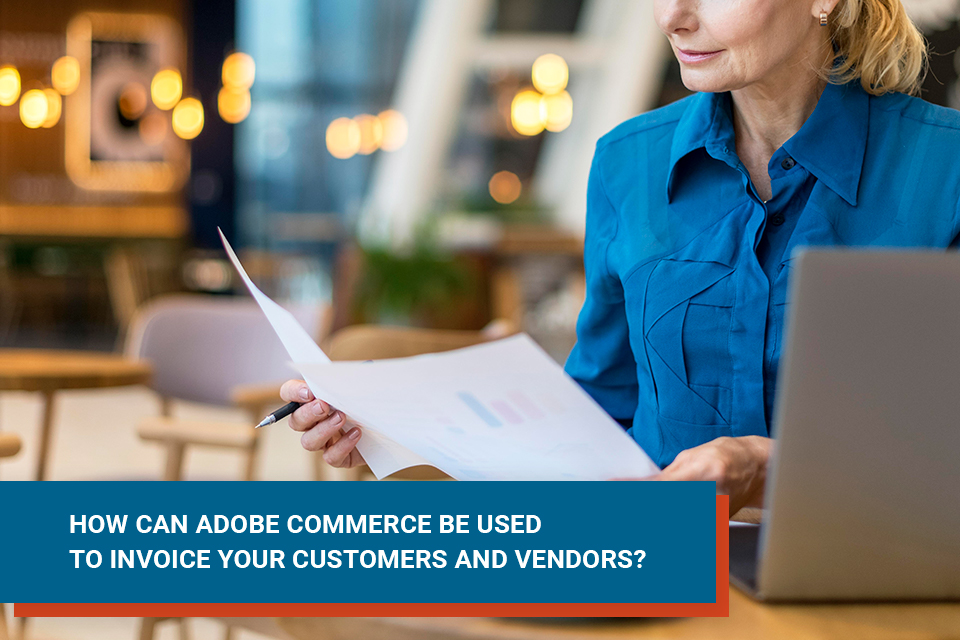7 B2B eCommerce Trends That Could Help Grow Your Business
 Igor Krasnykh
·
4 minute read
Igor Krasnykh
·
4 minute read

B2B businesses sell products and services to other businesses. A common example of B2B is the manufacturing industry. Automotive manufacturers, for example, build cars and sell them to dealerships in business-to-business transactions. On the contrary, the car dealerships are considered business-to-consumer (B2C) companies, because they focus on getting goods directly to the consumer.
Selling to the business market versus the consumer market is different in many ways. Not only is the audience different, but the communication approach, scope and complexity differ as well.
For these reasons, B2B and B2C businesses have experimented with different processes and marketing tactics to discover what works best for them. B2C companies have experienced measurable success by leveraging digital methods, which is something the B2B world is increasingly adopting.
More than ever, B2B executives are realizing they are playing a catching up game in the digital realm. That is partly because the buyer environment is shifting. As millennials move into their peak spending years, 60% of them shop online according to CouponFollow’s Millennial Shopping Report. That number is up from 47% in 2017.
Here are seven B2B trends and forecasts to expect this year, with technology lying at the center.

B2B eCommerce Trend #1: Brands Will Enhance Their Websites
Many B2B ventures have realized it is time to take their websites beyond purchasing a domain and posting basic company details. In response, they are overhauling their websites with complete redesigns, fresh content and a full-blown eCommerce experience.
Beyond a simple web presence, search engine optimization is becoming a priority. B2B companies are drilling down into the back ends of their websites to ensure they are set up for high-traffic success. Some are investing in SEO professionals and online tools to help them stand out among the competition.
Adding regular search-engine-optimized content is one of the best ways to organically boost visibility, and more B2B businesses are expected to leverage the strategy.
B2B eCommerce Trend #2: They Will Get Back to The Digital Basics
In addition to a renewed website focus, B2B businesses are placing their resources in tried-and-true classic strategies. Online reputation management, digital targeting and data have been the nuts and bolts of B2C companies for years, and they are a must-have for any business that wants to stay competitive today. Online reputation management (ORM) includes monitoring what is being said about a business or brand online and addressing content that could be damaging to its image. When businesses make ORM a focus area, they often use paid tools that alert them when they are mentioned online. SEO is a key part of ORM, as it can be used to push negative reviews away from the front page of Google while highlighting positive reviews. Another includes publically responding to negative comments, which could include apologizing when something goes wrong. Companies may also encourage satisfied customers to leave positive feedback when they have a good experience. B2B companies are also relying more heavily on data analytics to help them determine which business strategies are working and which ones are not. An assortment of valuable data sets can be collected from targeted ad campaigns, and social media sites and web platforms come equipped with user-friendly analytics tools.

B2B eCommerce Trend #3: They Will Take A Customer-Focused Approach
Being proactive is one of the most effective reputation management strategies. While no business can control what customers say about them online, they can get ahead of many issues by ensuring they have a smooth and pleasant buying experience. Tapping into the power of customer surveys is one way B2B businesses will gauge how they need to invest in their CX (Customer Experience) efforts. CX is becoming central in many marketing initiatives. In Adobe’s annual Digital Trends Report, B2B businesses were asked what they believed to be the single-most exciting business opportunity in 2020, and customer experience topped the list. Amazon and Apple are strong examples of successful companies that aim to please customers. Amazon’s vision “is to be earth’s most customer-centric company.” In its vision statement, Apple emphasizes its goals of making great products, continually innovating and focusing on the simple rather than the complex. Expectations are higher than ever when it comes to CX, especially in the digital realm. Adobe’s 2019 CXM Index Report reveals that more than half of online shoppers expect a certain level of innovation. For example, a majority of online shoppers said in a survey that they expected to receive receipts via email after making a purchase, and 40% expect a text message when an order has shipped. Personalization is another area where B2B companies are stepping up their games. In eCommerce, personalized experiences and interactions can come in the form of addressing customers by name in emails and making product recommendations based on browsing history.
B2B eCommerce Trend #4: They Will Embrace Social Media and Video Marketing More Than Ever
While many B2B businesses have seen social media as optional in the past, it is becoming more of a requirement. With so many social platforms emerging, B2B businesses are tasked with determining which outlets are best-suited for their needs.
Interactivity is an important piece of any B2B social strategy today. In Adobe’s Digital Trends Report, social media was No. 5 on the list of exciting B2B opportunities in 2020. However, video marketing was regarded higher at No. 4, so incorporating short video clips is an effort data shows is well worth the time. In 2019, Optinmonster revealed video marketers get 66% more qualified leads per year.

B2B eCommerce Trend #5: They Will Rethink Their Live Presence
Showing up in person has been a long-standing strategy for B2B businesses. You will commonly find B2Bs at trade shows promoting their products face-to-face. In the year to come, B2Bs will focus on enhanced face-to-face interactions.
Expect to see traditional booths replaced with engaging environments. In addition to creative set designs, virtual reality and augmented reality is something that is being incorporated at live events to ensure the experience is memorable for visitors.
B2B eCommerce Trend #6: They Will Zero in on Account-Based Marketing
It is a good time to jump on the digital targeting bandwagon, as the strategies have been fine-tuned through the years. Methods for targeting potential customers based on demographics and behavioral patterns are continually advancing, and B2B enterprises are latching onto the potential.
One of the latest advancements in targeted marketing is account-based marketing (ABM). With this approach, businesses look at individual consumer accounts to create smaller, more targeted groups.
The Information Technology Services Marketing Association released some powerful stats showing how ABM has improved reputation, relationships, and revenue.
- 87% of B2B businesses say ABM delivers a higher ROI.
- More than two-thirds of them report their ABM efforts have delivered positive results.
- 84% report improvements in reputation.
- 74% are seeing improved relationships.

B2B eCommerce Trend #7: They Will Rely More on Artificial Intelligence
Artificial intelligence (AI) is becoming more of a norm in the business world, and it is something B2B enterprises can benefit from. With machine learning, computers take on human characteristics, such as the ability to reason, predict outcomes, generalize and learn from mistakes.
There are many ways to incorporate AI into business processes, even in simple forms (such as using chatbots on websites).
Businesses do not have to reinvent the wheel when it comes to using AI. Salesforce, which makes a customer relationship management system used by many businesses around the world, is incorporating AI into its Software-as-a-Service (SaaS) apps. The company coined its AI capabilities Einstein AI.
The technology is capable of delivering precise segmentation for advanced targeting. It also has sophisticated analysis capabilities that reveal the best time to engage with certain customers as well as predict when sales may fall through.
To learn more about Salesforce Einstein and how it can help you put AI to work with your business, check out our previous post.



